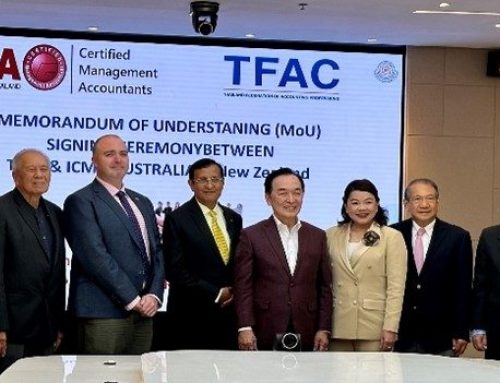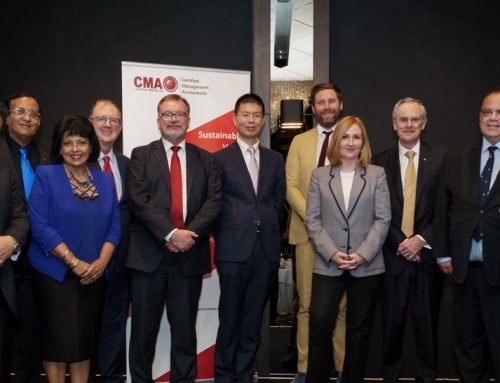Nov 18, 2021 – A ‘black swan event’ is one that whilst being extremely rare and of severe impact, is nevertheless characterised by the widespread insistence it was obvious in hindsight. The Covid-19 pandemic was described as such an event.
“Environmental damage is a swan of a different colour, a green one” says Prof Janek Ratnatunga, the CEO of the Institute of Certified Management Accountants (CMA ANZ).
“Green swans’ are the consequences of the risks we humans create for ourselves by pumping contaminants into our air and water, destroying our ecosystems, and destabilizing our climate. Some causes of an impending green swan event, like global warming are being well studied. However, other causes remain ‘hidden’ such as the looming plastic pollution pandemic. This can have equally devastating consequences of triggering a green swan event as green-house gas emissions, which in hindsight will be seen as being obvious,” he says.
In an in-depth study titled ‘Back to the Future! Reversing the Plastic Pollution Pandemic’, Prof Ratnatunga details how in recent years the surge in production has been driven largely by the expanded use of disposable plastic packaging in the growing economies of Asia —where garbage collection systems are so underdeveloped or non-existent that most throw-away plastic litter is piling up in streets, laneways, riverbanks and beaches.
“Unfortunately, what each individual considers as a minor littering misdeed, when considered collectively has a deadly impact on the environment.”
“In our oceans, which provide the largest natural carbon sink for greenhouse gases, plastic leaves a deadly legacy, he says. “It directly chokes and smothers a host of marine animals and habitats and can take hundreds of years to break down.”
“The disaster that can be caused by excessive litter that does not degenerate is no longer a potential threat but a real one” warns Prof Ratnatunga.
Individuals have been asked to carry a reusable bottle; choose aluminium cans over plastic when possible and recycle all plastic bottles.
“Unfortunately, these ethics-based solutions are just not working”, says Prof Ratnatunga.
“Because plastic pollution just like greenhouse gas emissions reach all corners of the globe, this issue needs mandatory global solutions similar to what was introduced in the 1990s as the Kyoto Protocol for Climate Change.”
Ideally, the United Nations must Ban single-use plastics worldwide.
At present, 170 nations have pledged to “significantly reduce” use of plastics by 2030. Most of the pledges focus on banning six items that are often found in the environment, are often not recycled and that have readily available alternatives. These are plastic grocery bags, straws, stir sticks, six-pack rings, cutlery and food take-out containers that are hard to recycle.
“However, such unilateral bans, whilst helpful, are of little value if excessive plastic litter continues to enter our waterways and are then taken globally via the ocean currents”, says Prof Ratnatunga.
If a global ban is not politically feasible in some countries – the plastics industry lobby is very strong says Prof Ratnatunga -then at least institutionalise controlled waste management in all countries in where the plastic rubbish that has been collected is brought to a processing station for controlled incineration.
How can this be financed? Prof Ratnatunga suggests that taxing companies will be as ineffective as a carbon tax was – as the companies will pay the tax and keep on littering, as they can pass the tax to the consumer.
Prof Ratnatunga says therefore that the best way is to impose a cap-and-trade system with ‘plastic-credits’; i.e., one similar to a carbon credit system. A ‘Plastic-credit’ can be defined as (say) one kilo of plastic resin that is either recycled or saved from being manufactured (by using alternative materials). Companies can be given a cap, and if they reach it, they can trade with a company that has excess plastic credits.
“Ultimately, however, it is the ‘start-of pipe’ solutions such as Smart Design and Smart Packaging – essentially low-tech solutions that takes design ‘back to the future’ of pre-plastic days – that holds the best hope in preventing the hidden ‘Green Swan’ event from eventuating,” he concludes.
[End]For further comment on the above topic, please contact:
Prof Janek Ratnatunga
CEO, ICMA Australia & NZ
Mobile: +61432758380
Email: [email protected]
About the Author
Professor Janek Ratnatunga is the CEO of the Institute of Certified Management Accountants, Australia & NZ. He has held senior appointments at the University of South Australia, Monash University, University of Melbourne, and the Australian National University in Australia; and the Universities of Washington, Richmond and Rhode Island in the USA. Prior to his academic career he worked as a chartered accountant with KPMG. He has also been a consultant to many large Australian and international companies and to the World Bank.



Stay In Touch